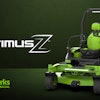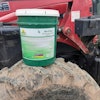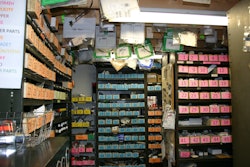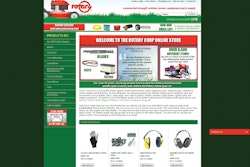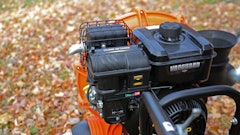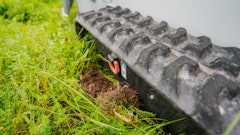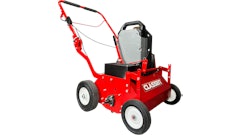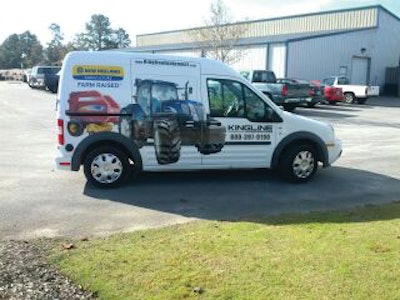
When they opened a new location, the team at Kingline Equipment saw mobile parts service as a great opportunity to connect with their new customer base while growing high-margin parts sales. After purchasing a truck and developing a plan for delivery, they were soon reaching customers in their new market in a new way.
“We needed to grow our parts business overall. We were entering new markets and it was a way to get a jump start the area with a new store,” shares Todd King of Kingline Equipment with locations in Florida and Alabama.
The man and wheels for the job
When they decided they wanted to offer the mobile parts service, the company purchased a vehicle for delivery. The parts delivery van also serves as a moving billboard for the business, outfitted with businesses advertisements.
“We purchased the vehicle before we started (thinking) it would be difficult to be efficient without the right equipment,” explains King. “We also felt like making the investment up front keeps us committed to staying on task with this project.”
More important than the van to deliver the tools is the salesperson behind the wheel. Mobile parts sales is more than a delivery service, and requires an individual who can manage the stock, remain patient and sell their products and knowledge.
“It is important to have the right person in this position," says King. "You get told no more than yes, but persistence pays off."
Managing inventories and routes
Parts sold through the mobile service make up 10% of the dealership's total parts sales. The mobile parts delivery service is offered only to professional users who own multiple units and have their own in-house mechanic. Depending on the contractor’s volume, the mobile parts service makes a visit to them biweekly or monthly.
King tracks profit for parts sold through mobile delivery separately from in-store merchandise. Inventory is adjusted so parts turn monthly at a customer's location. Slow-moving parts are moved back to the store for stocking.
Decide on a service area you are comfortable with. This might be right in-line with your equipment pickup and delivery boundary, if you offer such a service. If a customer is outside the decided route or boundary, asses the time and fuel costs as they relate to the promised sale.
Keep it on a schedule
Kind cautions against making deliveries too frequently and outside of scheduled visits. While it is convenient for the customer, it can get costly and counterproductive for the dealership and mobile sales service.
"Be careful not to turn into a delivery service," says King. "Customers still need to utilize the store for parts between stocking events."
Along with keeping the visits to a minimum, keep small talk on deliveries limited as well. While some small talk is good for building your relationship with the customer, keep them focused on the parts. It helps you to get more sales and save time on the road.
To get started in the mobile parts delivery side of business, you may want to set up a ride-along opportunity with another dealer who offers the service, or a tool delivery driver that serves your business. They can offer you some insight into the logistics of the business. You will want to nail down the logistics before starting your engine.
